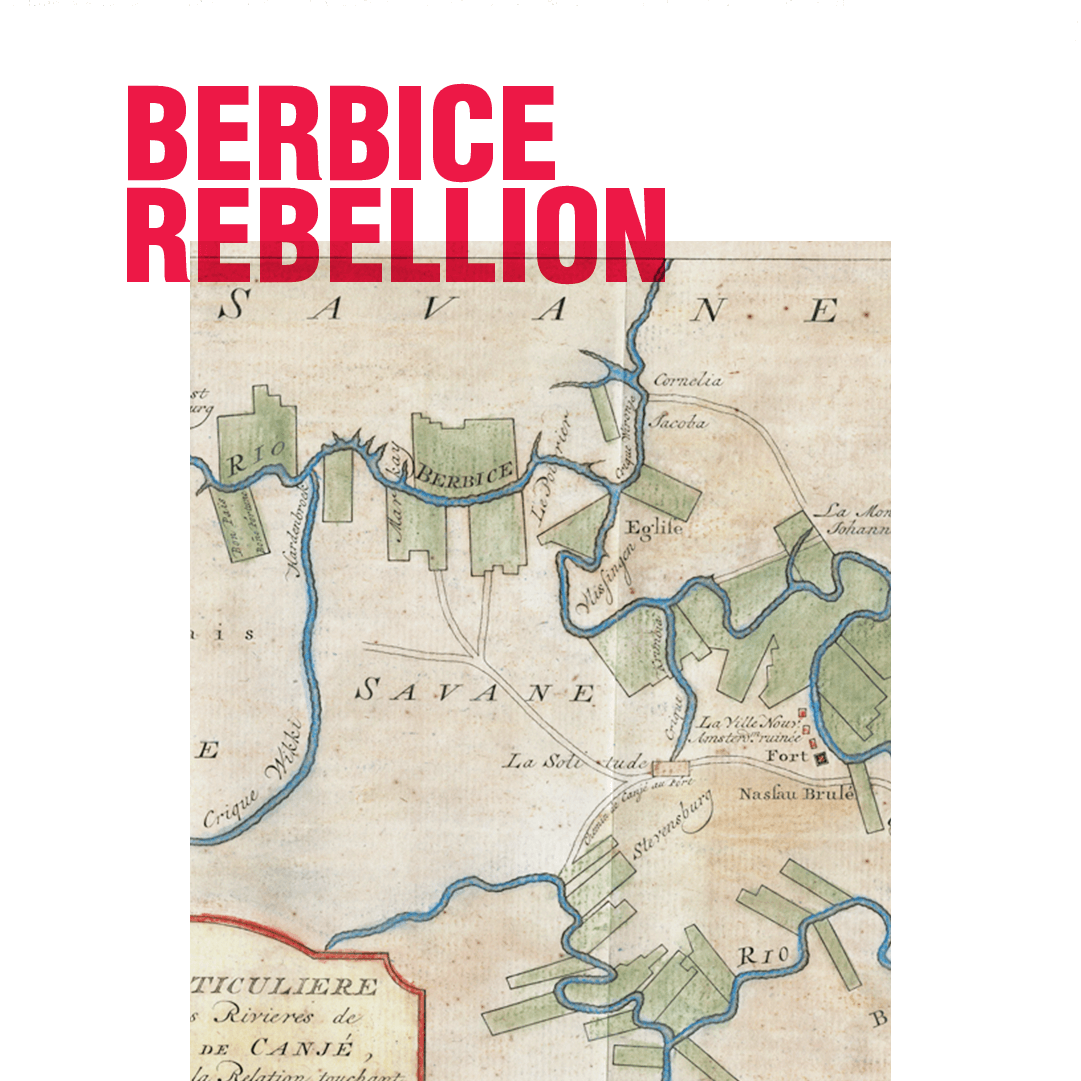|
On February 23, 1763, the slave uprising in Berbice started. The Netherlands had colonized Berbice, which is now part of Guyana, for approximately two hundred years. Initially, it was under the ‘patronage’ of the Van Pere merchant family from Zeeland since 1627, and later by an Amsterdam joint-stock company called "The Society of Berbice."
The living conditions of the enslaved people in Berbice had long been poor, and they worsened in the years leading up to the rebellion due to widespread diseases. The war in the Netherlands also led to a shortage of food in the region. This resulted in a high number of casualties, and the remaining enslaved individuals were forced to do the work of more people. Due to these circumstances, people decided to revolt. The rebellion began at Magdalenenburg plantation and spread to other plantations, including the one where the leader Cuffy (born Kofi) himself had initiated an uprising. Cuffy was a freeborn Akan man from West Africa who had been enslaved and sent to Berbice. In Berbice, there were between five to six thousand enslaved individuals and only 350 white colonists at the time. This disparity in numbers contributed to the success of the rebellion. The uprising was ultimately suppressed in the summer of 1764. Today, February 23 is still commemorated as a national holiday in Guyana. |
Openingstijden/Opening TimesWoensdag/Wednesday 11.00 - 17.00 uur
Donderdag/Thursday 11.00 - 17.00 uur Vrijdag/Friday 11.00 - 17.00 uur Zaterdag/Saturday 11.00 - 17.00 uur Onze nieuwe locatie in Amsterdam Zuidoost is geopend. Neem contact op via de pagina contact voor rondleidingen buiten het programma. We moved to South East Amsterdam. Contact us via the page contact for tours outside our program. |
(Rolstoel)toegankelijkheid/Accessibility
Momenteel beschikt The Black Archives niet over een speciale ingang en lift voor personen met een fysieke beperking en voor rolstoelgebruikers.
At this moment, The Black Archives does not have a special entrance or lift for person of disability. |


